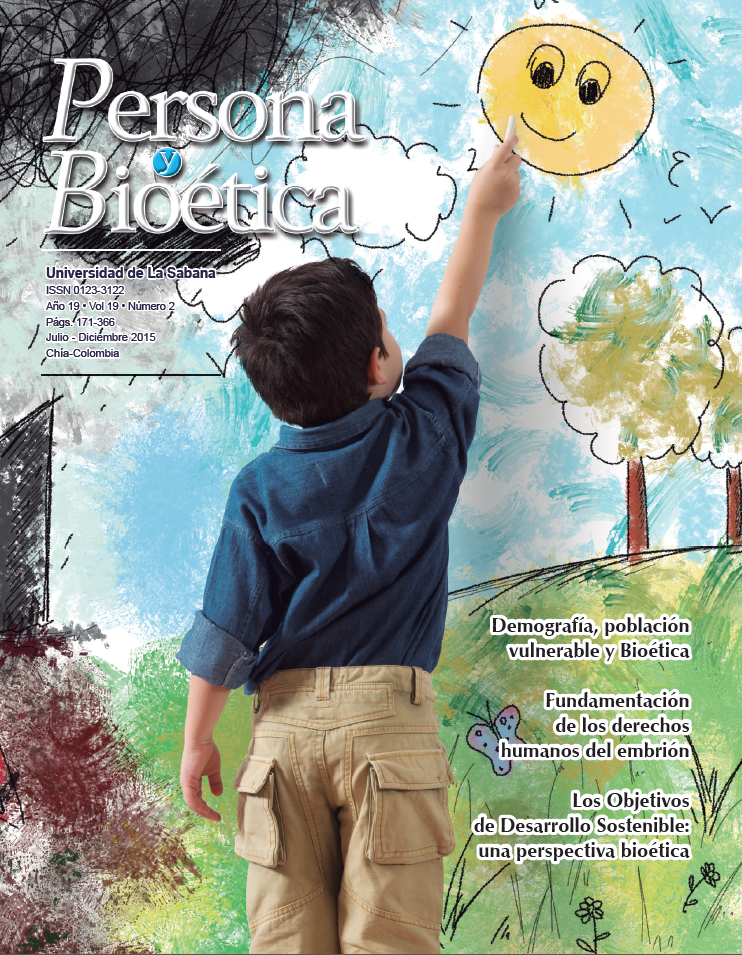ANTIGONE AND ARISTOTLE: INTERPRETING TWO VOICES ON THE AMBIGUITY OF THE TECHNIQUE
Keywords:
Ethical relativism, technique, Sophocles, Antigone, Aristotle (Source, DeCS, Bireme).Abstract
In the "Ode to Man," in Antigone,Sophocles stressed the moral ambiguity of the technique. Since it can be used for both good and bad, it requires a higher guidance, one represented by divine law. This theme is taken up by Aristotle, but on a secular basis, with his idea that some things are right or wrong by nature. For Aristotle, the straight orientation of the technique does not depend primarily on knowledge of certain ethical rules, but on the formation of character, since knowledge of what is good depends on the moral disposition of the subject.Downloads
Download data is not yet available.
Published
2015-11-13
How to Cite
García-Huidobro, J., Giménez, C., & Honorato, D. (2015). ANTIGONE AND ARISTOTLE: INTERPRETING TWO VOICES ON THE AMBIGUITY OF THE TECHNIQUE. Persona Y Bioética, 19(2). Retrieved from https://personaybioetica.unisabana.edu.co/index.php/personaybioetica/article/view/5427
Issue
Section
Articles
License
Authors who publish with this journal agree to the following terms:
This journal and its papers are published with the Creative Commons License Attribution-NonCommercial-NoDerivatives 4.0 International (CC BY-NC-ND 4.0). You are free to share copy and redistribute the material in any medium or format if you: give appropriate credit, provide a link to the license, and indicate if changes were made; don’t use our material for commercial purposes; don’t remix, transform, or build upon the material.





